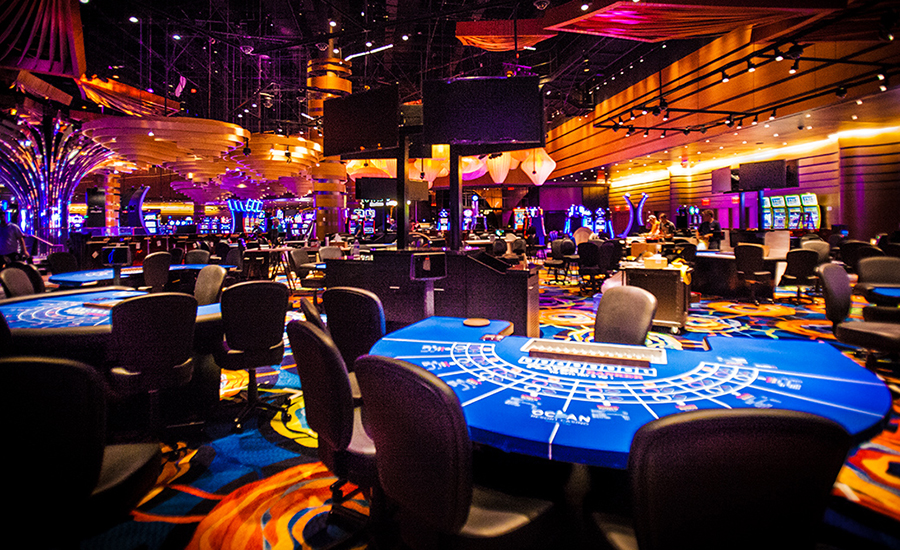
Gambling games have consistently attracted various types of players, offering not only excitement through chance but also a tailored experience crafted for diverse player types. From analytical thinkers who thrive on calculation and skill to recreational players in search of entertainment, casinos understand the details of their audience and create games that cater to these diverse tastes.
In investigating the universe of casino gaming, we find a rich tapestry of game types that interest all types of players. High-stakes poker tables draw competitive individuals, while exciting slot machines appeal to individuals in search of immediate satisfaction. Whether it’s about the allure of winning big or simply savoring the social atmosphere, casinos tailor their game offerings to ensure that everyone finds a spot where they feel comfortable and engaged. Recognizing how these games cater to various player types can enhance not only our appreciation of them but also how we approach selecting which games to play.
Understanding Player Types
In the multifaceted world of gambling games, players can be categorized into separate categories based on their drives and likings. These participant kinds range from the casual and social gamers, who enjoy the fun value and social connections that gambling provides, to the more analytical and analytical players, who seek to increase their odds and winnings. Understanding these various player types is essential for casinos to customize their offerings and build captivating environments.
One frequent category is the communal player, who considers casino games as a form of community interaction and enjoyment rather than a solemn gambling endeavor. These participants often enjoy games that encourage participation and friendship, such as poker. Their focus is on the experience rather than the result, so vibrant settings and mutual moments are what they hold dear the most.
On the contrary end of the range, competitive players are driven by contest and the pursuit of ability. They tend to be drawn toward games that demand decision-making and strategy, such as poker, where their abilities can affect the outcome. This kind often engages with the games on a more profound level, utilizing knowledge and strategies to achieve an edge. Grasping these motivations allows casinos to create settings and game selections that cater to each participant’s unique choices.
Game Design Strategies
Casino games are designed with varied player types in mind, employing multiple strategies to attract and capture them. For recreational players, the focus is on ease and clarity. Games like slot machines are often aesthetically pleasing with straightforward mechanics. This enables players to experience the gameplay without a difficult learning curve, fostering an welcoming atmosphere. The vibrant hues, engaging audio, and thematic elements create a playful environment where players can quickly get immersed and enjoying themselves.
For tactical players who enjoy a deeper level of engagement, games such as poker and blackjack offer depth and skill-based elements. These games incorporate strategy and tactical choices, attracting to players who excel on competition and want to utilize their mental skills. The design of these games often includes complex rules and mechanics that challenge players to hone their skills and create strategies over time, creating a fulfilling experience for those who enjoy mastering the game.
Furthermore, community-oriented players are catered to through games that highlight engagement and community. This includes live casino options and multiplayer games, which cultivate a sense of community among players. The design of these games often includes communication tools and social elements, allowing players to connect and share experiences. By building an environment where participation is encouraged, casinos can effectively involve social players, making the gaming experience more pleasurable and unforgettable.
Boosting Participant Engagement
Casino games have progressed considerably to create a much more entertaining environment for gamers. Software developers focus on high-quality images, rich soundscapes, and novel gameplay features that engage players into the casino atmosphere. By employing tech, such as immersive technology and enhanced reality, gaming establishments ensure that gamers feel as if they are part of a thrilling environment, enhancing not just the enjoyment of the activities but also the entire enjoyment of being in a gambling venue.
Community engagement is another important element in boosting player engagement in gambling games. Many titles are designed to facilitate interaction among gamers, whether through multiplayer modes or chat features. This interactive component appeals to gamers who like interacting with other participants while playing, developing a community vibe community. Furthermore, social features can consist of scoreboards, competitions, and incentives for team engagement, which attract competitive participants and encourage them to revisit for further.
In conclusion, customization plays a vital role in tailoring the experience for diverse player types. Casinos and game developers analyze player behavior and likes to present personalized game suggestions and rewards. By grasping the individual interests of gamers, gaming establishments can present tailored offers, incentives, and fresh games that resonate with each participant, thus boosting their complete engagement and loyalty to the betting establishment. MCW77
